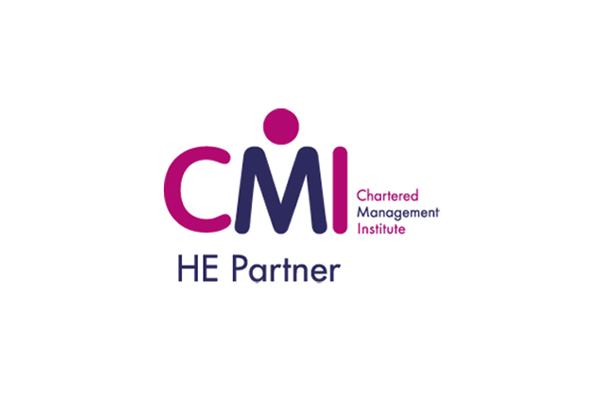Module Overview
This module is designed for students who are thinking of a career in the international arena. It will be of use to anyone interested in working in multinationals or those interested in understanding how business is conducted across different cultures
Module Overview
This module builds on the principles of the United Nations Global Compact and the ‘purpose’ of the Principles of Responsible Management Education, as well as the ‘essence’ of the World Business Council for Sustainable Development, Vision 2050, to develop the knowledge, skills, and capabilities of students to be future creators of sustainable value for business, and to work towards an increasingly inclusive society and a more sustainable global economy.
This involves rethinking and reengineering business strategies and activities, to understand organisational constructs and influences, as well as that of their ’own agency’, to be the change that produces and secures economic, social, and environmental value for current and future generations. This means systematically examining contemporary business, economic development, and the historic relationships with a ‘Eurocentric’ social-cultural construct within global commerce and management, to discover a fairer and increasingly viable future.
As a consequence, this module will ask students to explore and reflect on responsible management, sustainability, and ethical practice, as well as the resultant effects on global society, and the environmental costs created by human interaction as they analyse and evaluate contrasting strategies and approaches. This will not only provide a better understanding of the challenges of responsibly managing sustainability and ethical practice but will also identify and emphasise the questions to be addressed in respect of their future management endeavours.
Module Overview
This module aims to provide students with an understanding of the background and context of the contemporary business environment as it has been shaped within the European Union by the policies and programmes developed at a European level. It draws on theories and concepts from the disciplines of economics, politics, and history. BREXIT is a theme.
Module Overview
This module endeavours to provide an introduction to the importance of the Human Resource Management (HRM) function in an organisational context. The module explores and examines the strategic role of HRM and its contribution to the operational aspects of the HR function to support workforce planning in light of the broader business, social and ethical context. The module provides an important oversight for both aspiring HR practitioners and also future organisational managers.
Module Overview
This module explains the gains to be made from economic integration and the globalisation process. It examines the main patterns of trade and exchange and shows how free trade can be influenced by the government and the future risks of protectionism. Trade is also supported by international capital markets and exchange rate determination as well as international policy coordination and these factors need to be well understood.
Module Overview
This module is designed to introduce students to a wide range of Operations Management topics that contribute to an understanding of organisations as systems seeking to remain viable and competitive within their environment.
Module Overview
This module is only for students whose first language is not English.
The aim of the module is to enable students to communicate successfully in the international business world. The module focuses on a range of business skills that can be applied in a global context, as well as the skills and themes associated with working in a foreign country or dealing with international businesses. The module places an emphasis on independent study.
The module aims to strengthen and consolidate existing communicative competence and introduce new skills. Students can learn persuading, influencing, negotiating and problem solving skills. There is the opportunity to develop a broad critical understanding of cultural issues and their impact on businesses.
Module Overview
This module is only for students whose first language is not English.
The aim of the module is to enable students to communicate successfully in the international business world. The module focuses on a range of business skills that can be applied in a global context, as well as the skills and themes associated with working in a foreign country or dealing with international businesses. The module places an emphasis on independent study.
The module aims to strengthen and consolidate existing communicative competence and introduce new skills. Students can learn persuading, influencing, negotiating, and problem solving skills. There is the opportunity to develop a broad critical understanding of cultural issues and their impact on businesses.
Module Overview
This module aims to provide the non-economist with an amalgam of macroeconomic theory and contemporary comment which prepares students for a further study in economics. There is a grounding in basic macro concepts such as inflation and deflation, growth and stagnation, and balance of payment issues and exchange rates.
Module Overview
This module is designed to equip students with understanding and skills to help them deal with the financial issues they will face in whatever business discipline they eventually practice. At its conclusion, students should have a solid understanding of the key elements of financial management that inform and affect the choices made by business. Furthermore, students have a platform in the principles, models, and issues that underpin the advanced aspects of the subject area.
Business Finance Practice is concerned with the efficient and effective management of the finances of an organisation in order to achieve its objectives. It involves planning and controlling: where funds are raised from, where funds are deployed to, and whether funds are being used effectively or not. In many organisations, Finance is recognised as one of the major management functions alongside others such as marketing, production and human resources. In this module, students can develop an understanding of several principles that underpin business finance as a discrete discipline.
Students are able to learn to analyse real world companies’ stock and financial performance as well as financial health. Students can also learn to solve finance problems and provide data and information using computer technology.
Module Overview
This module explores some key areas of microeconomic policy for business. At its heart it is a consideration of competition theory and industrial structure. This informs the analysis of competition policy in sectors, such as telecoms and airlines. This is extended to a consideration of injecting competition into the state sector. Other areas of state intervention are explored where activities are taxes; prices are regulated; or industry is incentivised to relocate. Throughout, concepts and applications are made relevant to real world examples.
Module Overview
Lincoln International Business School (LIBS) believes that an option to study overseas is a valuable educational opportunity for our students.
The optional year is intended to:
- enable students to benefit from studying similar subjects within a cross cultural environment, by exposing students to a wider academic and cultural experience;
- facilitate reflexivity in learning and personal and professional development;
- enhance their future employment opportunities by increasing their cultural and professional mobility.
This module is optional for all taught on campus undergraduate students within Lincoln International Business School. Study Abroad is a year long module which enables students to spend time studying abroad at one of the University’s approved partner institutions.
During the year spent abroad, students share classes with local students and study on a suite of locally-delivered taught modules which have been approved in advance by the University. As many partner institutions support internships it is anticipated that some students will elect to combine study (minimum one semester equivalent) with work and or a period of volunteering.
Eligible students must have completed their second year of study to a satisfactory standard (normally with an average of a 2.1 or above, dependent upon partner requirements) standard and successfully completed the application process.
Upon completion of the study period abroad, each student will be required to submit a portfolio including a reflection on the experience of living and studying in a different cultural environment and the skills acquired.
Module Overview
This module builds on students’ knowledge of macroeconomics from earlier in the course and emphasises the role of macroeconomics as an applied discipline. This module aims to equip students with the ability to use techniques to interpret changing macroeconomic aggregates, event, and policies.
Module Overview
This module aims to provide a solid foundation in the theory and best practice of project management, with the aim of developing the practical skills of how to plan, implement and control projects. The module provides students with the chance to develop an understanding of the system perspective on management and a practically oriented introduction to the nature and purpose of project management and its key functions (scope, time, cost, quality, risk). To adequately balance the hard skills learned, the module also involves an appreciation of how to communicate with project stakeholders and an understanding of the organisational and human issues involved in managing projects.
Module Overview
This module is aimed at those students who have decided to take a year out of formal studies to gain accredited work experience and are registered on a degree programme with an accredited professional practice element. The Professional Practice Year aims to give students a continuous experience of full-time work within an organisation.
It should be a three way co-operative activity between employer, student and University from which all parties benefit. Students can choose to pursue a variety of options including a placement year, a consultancy project or a work-based dissertation. Potential costs relating to this module are outlined in the Features tab.
Module Overview
Students can elect to study up to 60 credits abroad at one of our partner universities , usually in the second semester. Usually students will elect to study for a semester and take 60 credits of study.
Module Overview
Students can elect to study up to 60 credits abroad at one of our partner universities , usually in the second semester. Usually students will elect to study for a semester and take 60 credits of study.
Module Overview
Students can elect to study up to 60 credits abroad at one of our partner universities , usually in the second semester. Usually students will elect to study for a semester and take 60 credits of study.
Module Overview
Students can elect to study up to 60 credits abroad at one of our partner universities , usually in the second semester. Usually students will elect to study for a semester and take 60 credits of study.









